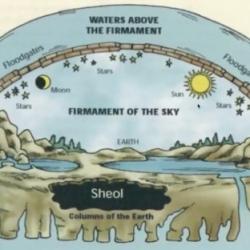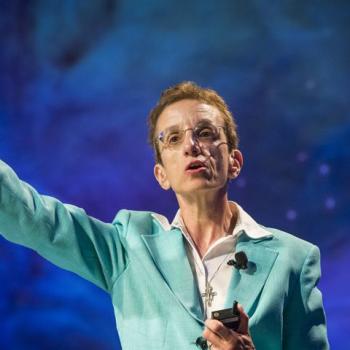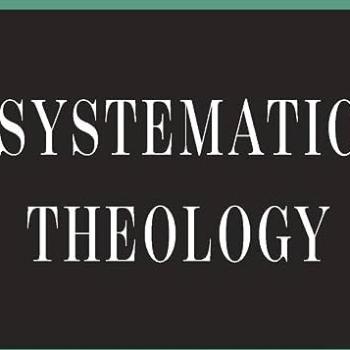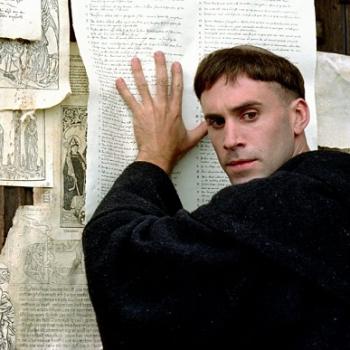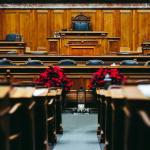Taiwan Crisis of 2022?
PT 3301. Professor Frank Budenholzer at Fu Jen Catholic University

If you’ve been worried about the loss of freedom in Hong Kong, is it time to worry about Taiwan too? Mother China—the Peoples Republic of China—seems to want to return her island children to the womb. Forcibly. The world now has the Fourth Taiwan Crisis to worry about.[1]
In a previous post—“The Public Theology of Kang Phee Seng”—we learned that today’s Hong Kong is no longer the one we’ve come to love. Local freedoms have been gobbled up by the mainland dragon. Might Taiwan’s crisis end with the dragon gobbling up more?
A recent webinar, “Taiwan’s Christians: What’s at Risk if China Takes Taiwan,” certainly frightened me.
So, it’s time to meet Frank Budenholzer, S.V.D. Fr. Frank is a Roman Catholic priest and member of the Society of the Divine Word. He is also Professor Emeritus of Chemistry at Fu Ren Catholic University in Taipei, Taiwan. Over the decades he has ferried back and forth between Taiwan and mainland China twice a month or so. Let’s ask Frank for his sober evaluation of the Taiwan crisis.
Question 1. Frank, how long have you been a professor at Fu Jen Catholic University in Taipei? How have things changed in recent months as Beijing threatens to bring Taiwan back to the motherland?

Frank Budenholzer. I came to Taiwan in 1978, after professing perpetual vows as a member of the Society of the Divine Word, ordination to the Catholic priesthood and completing an MA in theology at the Catholic Theological Union in Chicago and my Ph.D. in physical chemistry at the University of Illinois in Chicago. I began full time at Fu Jen Catholic University in 1980. I retired as a professor in 2009. From 2008 until 2017 I held an administrative position with my religious community and regularly visited Mainland China, Hong Kong and Macau. I am now back at Fu Jen University as the executive trustee. I have not recently visited China, Hong Kong or Macau because of the covid-19 pandemic.
We are, of course, aware of the threats of Beijing to join Taiwan to the Mainland using military force if necessary. However, the threats and international media attention focused on the Taiwan crisis have had very little impact on our day-to-day lives, at least here at the university and among my colleagues and friends. We sometimes joke while dining that Taiwan people are the least concerned about the threat.
Question 2. Is it realistic to forecast that mainland China will try to take Taiwan by military force? Are there movements within Taiwan who want to reunite with mainland China and become communist?
Frank Budenholzer. In talking with friends in China, there is clearly a consensus in China that Taiwan should be re-united with the Mainland. It is a very dangerous situation. There is always a concern the Chinese leadership will use the Taiwan situation to distract the Chinese population from problems at home. There is also no doubt here in Taiwan that the Mainland military is continually increasing in strength. Perhaps most worrying from the Chinese perspective is the fact that the clear majority of people in Taiwan consider themselves simply Taiwanese with a smaller group identifying as Chinese and Taiwanese. Very, very few identify as simply Chinese.
At present the vast majority of Taiwan citizens favor maintaining the status quo and avoiding a declaration of independence which would anger Mainland China. There is a small group who favor unification with China as the long-term goal. I have never met anyone who suggests becoming communist.
Question 3. Many around the world fear that the future of Christianity could be at stake. Under Beijing rule, Taiwanese Roman Catholics and other Christians would lose their precious freedom to think independently and to worship Jesus Christ as Lord of Lords and King of Kings. Is this your assessment of the Taiwan crisis?
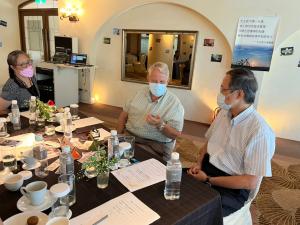
Frank Budenholzer. The Chinese constitution guarantees freedom of religion but is also a declared atheist state. Catholic, Protestants and other faiths are allowed to worship in China. China is a huge country, so the situation varies considerably from one province to another. However, the government is, no doubt, increasingly repressive. For example, for a long time there has been a rule that those under 18 years of age should not participate in religious services. However, the rule is only now being enforced in many places.
The Chinese government shows little interest in the belief systems of Christians. The Chinese government feels the need to control religious organizations and, in principle, does not allow any formal relationship with foreign entities. In Hong Kong and Macau political freedom has been sharply curtailed. However, the Catholic and Protestant churches and parishes continue to operate more or less as before the crackdown. Private church-sponsored schools continue operate in Hong Kong and still receive government subsidies. Opinions vary on the future of religious freedoms in the Special Administrative Regions. Presumably, if Taiwan would be controlled by Beijing, the situation, at least initially, would be similar to that in Hong Kong and Macau. It is more difficult to speculate on the long-term situation. But is hard to be too optimistic.
There are private universities in Mainland China but, as far as I know, none identify as religiously based institutions. There are also both Catholic and Protestant schools of theology for the training of clergy and religious, closely monitored by the government. Would Fu Jen Catholic University, as well as other Catholic and Protestant universities in Taiwan, be allowed to continue operating if Taiwan would come under Mainland Chinese control? Initially probably so, but it is difficult to know in the long term.
Question 4. Currently the Vatican and Beijing have an agreement that permits Roman Catholics within the Peoples Republic of China to have some elbow room. Are you happy with this agreement? Many are asking Pope Francis to nullify this agreement. What is your stand on the issue?
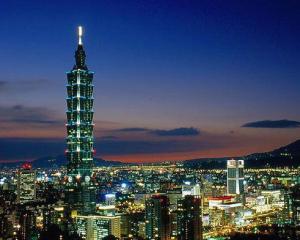
Frank Budenholzer. The agreement between the Vatican and the Peoples Republic of China was first signed in September 2018 and was renewed in 2000. The agreement will up for renewal in October 2022. The agreement is limited in scope and has never been made public. However, the basic content of the agreement is clear that the Vatican and the Chinese government will cooperate in the selection of bishops and the final appointment will be made by the pope. Presumably the Vatican has veto power on names presented by the Chinese government. But this is not completely clear. There was a similar understanding in place for many years before the agreement and the majority of the Catholic bishops in China also have the approval of the Holy See. The bishops appointed by the Chinese government without the approval of the Holy See have always been kept at a distance, both by the underground church and by the rank-and-file of the government sanctioned above ground church.
The agreement is controversial both within Catholic circles in China and overseas. It is also controversial within the Chinese government. From the Chinese side, the agreement seems to violate the basic principle, enunciated from the early years of the Marxist government, that Chinese religious institutions should sever any ties with foreign authorities. From the church side, the increasing repression of the church is quite clear. And it is not clear that the Chinese authorities have kept the agreement.
Should the agreement be renewed later this year? I tend to agree with Pope Francis that it is worth trying to come to some kind of agreement. However, if the Chinese authorities do not keep to the agreement and if they continue the practice of using the agreement to put pressure on both priests and lay Catholics to join the patriotic association, when in conscience they prefer not to, then perhaps it is better to let the agreement lapse.
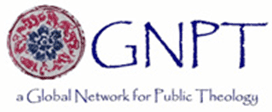
Conclusion
Thank you, Frank Budenholzer.
 This engagement with the Taiwan crisis has been an exercise in public theology. It takes the form of discourse clarification. We are attempting to understand a situation with many unknowns. The chief unknown is this: what will Beijing do? Because we do not know yet, it’s difficult to measure the Taiwan crisis.
This engagement with the Taiwan crisis has been an exercise in public theology. It takes the form of discourse clarification. We are attempting to understand a situation with many unknowns. The chief unknown is this: what will Beijing do? Because we do not know yet, it’s difficult to measure the Taiwan crisis.
Repeatedly I’ve proffered that public theology is conceived in the church, critically honed in the academy, and offered to the world for the sake of the common good. In the case of the Taiwan crisis, I believe the common good includes relative independence for the Taiwanese people and liberty for the Taiwanese Christians.
[1] The First Taiwan crisis was 1954-1955. The Second Taiwan crisis took place in 1958 and the Third in 1995-1996. Historians dub the present situation the Fourth Taiwan Crisis.▓

Ted Peters pursues Public Theology at the intersection of science, religion, ethics, and public policy. Peters is an emeritus professor at the Graduate Theological Union, where he co-edits the journal, Theology and Science, on behalf of the Center for Theology and the Natural Sciences, in Berkeley, California, USA. His book, God in Cosmic History, traces the rise of the Axial religions 2500 years ago. He previously authored Playing God? Genetic Determinism and Human Freedom? (Routledge, 2nd ed., 2002) as well as Science, Theology, and Ethics (Ashgate 2003). He is editor of AI and IA: Utopia or Extinction? (ATF 2019). Along with Arvin Gouw and Brian Patrick Green, he co-edited the new book, Religious Transhumanism and Its Critics hot off the press (Roman and Littlefield/Lexington, 2022). Soon he will publish The Voice of Christian Public Theology (ATF 2022). See his website: TedsTimelyTake.com. This fictional spy thriller, Cyrus Twelve, includes scenes within Taipei 101 Tower.







